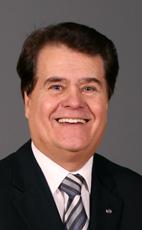Mr. Speaker, yesterday, during his visit to the European Parliament, Quebec's deputy premier openly condemned Canada for its action against Spain in the turbot dispute. This new change of direction by Mr. Landry goes against the support expressed by his leader, Mr. Parizeau, regarding our intervention, as well as by the Bloc Quebecois.
My question is for the Minister of Fisheries and Oceans.
Can the minister assure Canadian fishermen, particularly those in Quebec, that Mr. Landry's change of direction will have little impact on the issue of overfishing off Canada's coasts?

